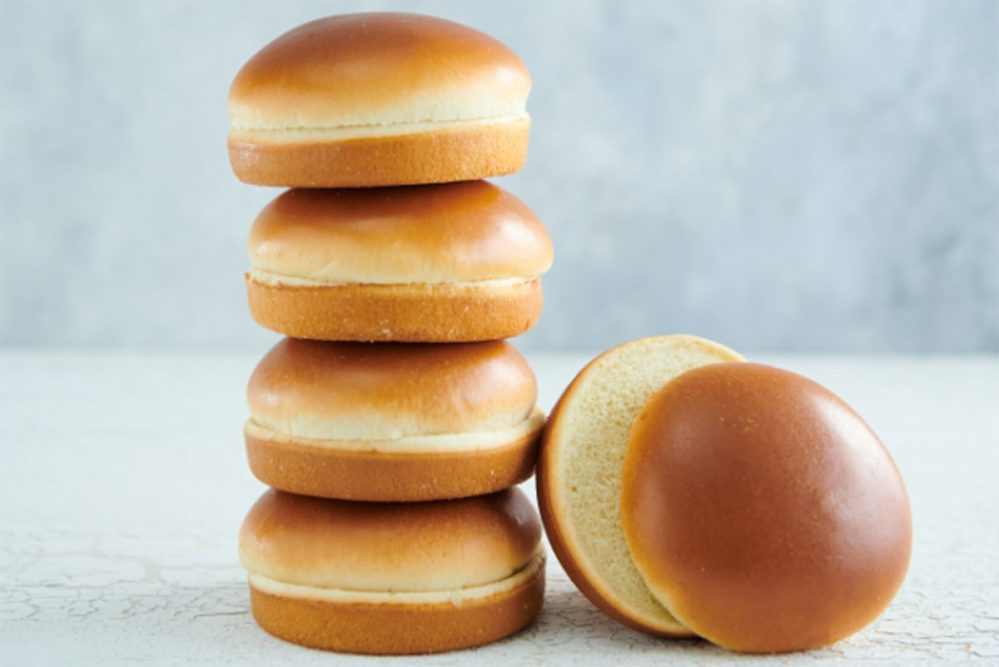A classic French croissant has 55 layers, including 27 layers of butter. Brioche’s characteristic rich flavor and fluffy texture are all thanks to butter, cream and eggs. Pound cake’s very name is a nod to its traditional recipe: one pound each of butter, eggs, flour and sugar. And with meringue, the basis of French macarons as well as angel food cake, it’s all about whipped egg whites. It was not too long ago that eliminating animal-based ingredients from such baked goods would have been blasphemy. Today, it’s the trend.
Data from Innova Market Insights shows vegan was the second-fastest growing claim in bread in 2022 with 18% of all US bread launches carrying a vegan claim. Vegan was also among the top five claims in the sweet baked goods space, with 11% of US product launches carrying a vegan claim.
“Many breads are relatively easy to craft using only plant-based ingredients,” said Aaron Reed, senior food technologist, Cargill. “Most commercial bread recipes don’t use milk, eggs or butter. But many other baked goods are heavily reliant on eggs and/or dairy, making their reformulation more difficult.”
Despite the difficulty in formulating some bakery applications to be vegan-friendly, demand for these claims has spurred innovation.
“While the flavor of vegan products has improved dramatically over the past five years thanks to advances in ingredient technology, early entries to the category sometimes fell short of consumers’ taste and texture expectations,” said Courtney LeDrew, senior marketing manager, Cargill. “We continue to see advances on the ingredient side that make it easier for bakers to craft plant-based products with improved flavor, texture and overall sensory attributes.”
Chef Abbie Stratton, co-owner of Monarch Bakery, Rockford, Mich., specializes in high-end vegan baked goods.
“The joy for us is knowing that not only can we make someone’s day, occasion or event extra special with traditional pastry, but that we can also help people with dietary restrictions be included in the enjoyment,” Ms. Stratton said.
The secret to her taste-alike treats is lots of trial and error.
“You can’t rush the process,” Ms. Stratton said. “You need to let the shells rest; you need to let each step take the time it needs, even if you hate waiting. It’s the quality of the product you use. When making vegan items I buy the best ingredients, and I put the research into what I do.”
Earlier this year, La Brea Bakery, a brand of Aspire Bakeries, Los Angeles, introduced brioche buns for foodservice. While marketed as a vegan formulation, these buns deliver the same rich, mildly sweet flavor as the brand’s original brioche and are hearty enough to hold up to the juiciest sandwich builds, according to Jonathan Davis, culinary innovation lead, Aspire Bakeries.
“Many foodservice operators have streamlined or simplified their menus over the past few years, and the new La Brea Bakery brioche bun meets multiple consumer demands including gourmet offerings and health halos,” said Brie Buenning, director of marketing and La Brea Bakery brand manager, Aspire Bakeries. “We are committed to providing our operator customers with an expansive and flexible assortment of elevated artisan breads to satisfy their patrons, meet current trends and support increased profitability.”
On the retail side, global brand Brioche Gourmet, New York, now offers vegan brioche burger and hot dog buns, loaves, and plain and chocolate croissants. Key ingredients used to replicate color, flavor and texture include wheat gluten, pea protein, flavoring and emulsifiers.
Whoa Dough, Highland Heights, Ohio, produces gluten-free vegan cookie dough bars. Conventionally, eggs would provide the texture expected from cookie dough, but in Whoa Dough, chickpea flour provides that signature texture.

